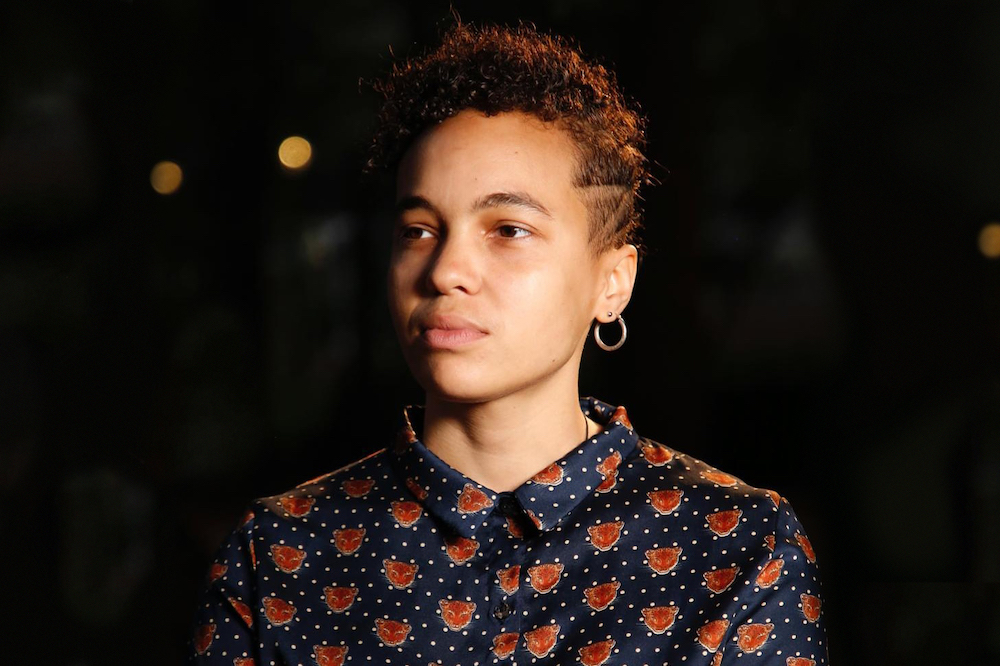
Courtesy of Shari Davis.
Shari Davis is the executive director of the Participatory Budgeting Project. She previously spent 15 years in local government as director of youth engagement and employment for the city of Boston, where she launched “Youth Lead the Change,” the first youth participatory budgeting process in the U.S. Before speaking at a Zócalo/Global Forum on Modern Direct Democracy event, titled “Should Global Democracy Be More Direct?,” she talked in the virtual green room about what drew her to Oakland, how anatomy applies to democracy work, and why we need to think more about democracy beyond elections.
What’s the last book you read?
Well, you can see the book in front of me is The Eight Principles of Sustainable Fundraising by Larry C. Johnson. But the last book I read—and the one I’d like to lift up—is Swing Time by Zadie Smith.
What’s your biggest pet peeve?
Hearing people chew, hearing them eat audibly.
Where would we find you on a Sunday afternoon?
So that’s after church. You’d find me standing over a grill or stove cooking a meal for my community.
Besides family and friends, what do you miss most about Boston?
I miss that deep familiarity with the unique pace of a place … I wasn’t born in Boston. I was born in the Deep South, in Louisiana, and then moved there. Boston is a place of firsts. It’s a place of contention and division, and it’s also a place of learning … When I think about Boston, I think about reckoning, I think about community, and I think about activism
You graduated Boston University’s Sargent College for Health and Rehabilitation Sciences and hold a master’s degree in anatomy and physiology. What’s the most important thing you learned while studying anatomy?
When people learn about my background, when they learn I got a master’s degree in anatomy and physiology, one thing I hear is, “It must be frustrating to not use your degree every day.” But I use my degree, my health education, every day. And the biggest thing I learned is how important it is, and how hard it is, to detect trauma and repair it. … And so, I bring an evidence-based lens into work on an everyday basis—and I bring that recognition that trauma is real, that you can touch it, and that there are ways to address it.
What was the biggest lesson for you from “Youth Lead the Change,” the groundbreaking youth participatory budgeting process that you launched in Boston?
That I wasn’t imagining enough. I thought I was exploring all the creative crevices of my mind. I realized more was possible. I realized the depth of radial imagination. And I realized the work I had to do to be in that space … I realized my limits—I defaulted to the status quo. When you asked me what was possible, I defaulted to what I had seen … It wasn’t until “Youth Lead the Change” that I thought, I need to go back to radical imagination school.
Where in the world do youth have the most power?
There are places like Portugal, where there is a countrywide participatory budgeting process, where young people have the opportunity to spend money across the country … But where do youth have the most power? I think that’s the work we have to do. … When we look at movements like that of climate change, when we look at major social movements through history, they have been carried and led by young people .and I don’t think that’s recognized globally as much as it should be.
You’re in Oakland now. What first brought you to California?
It was culture and it was community. I lived in the Deep South, and I lived in New England, and as I traveled the world … I just fell in love with Oakland. And I continued to go there because of the work I was doing. I found myself building deeper connections, and listening to the place … It’s the birthplace of the Black Panther movement that has deep history in my family.
What’s the best place to eat in Oakland?
A business that I just love, Bissap Baobab! This is an establishment that has been through a lot.
What teacher made the most lasting impression on you?
The first name that came to my mind is Adrienne Maree Brown … I had an opportunity to witness her teaching as an Obama Foundation fellow. She wrote some amazing books, like Emergent Strategy: Shaping Change, Changing Worlds.
Participatory budgeting, in which people themselves create budgets for their own communities, their own cities, schools, and countries, has developed and spread around the world and across the country. Where is participatory budgeting’s next big breakthrough most likely to happen?
If you want to talk about innovations in participatory democracy, the next big breakthrough is what we call Democracy Beyond Elections … It’s an opportunity to think about the customized tools that need to exist in a community. And how do we put the tools and resources in peoples’ hands … And it happens to be launching today.



